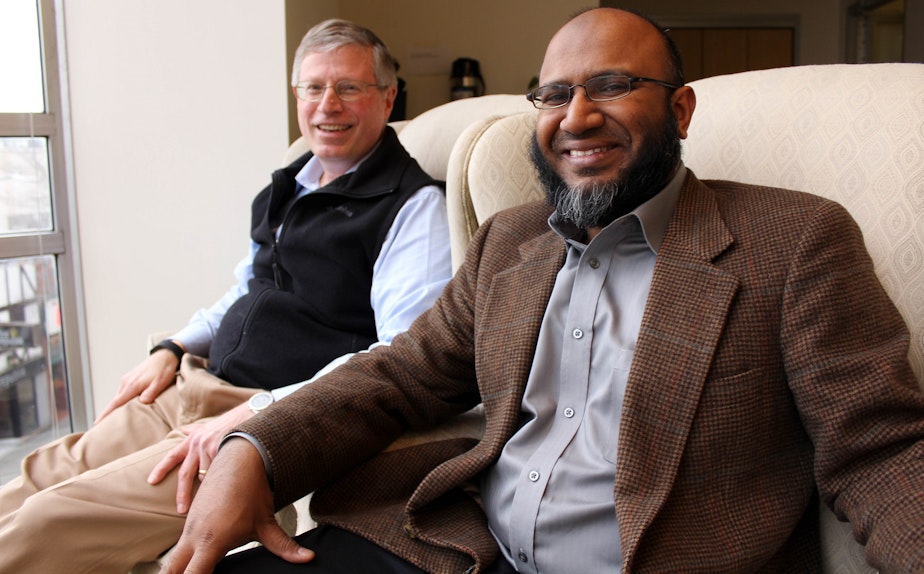Lessons in loving your neighbor from the Muslims and Mormons next door

A couple of weeks ago, a fire destroyed a Bellevue mosque. So their neighbors stepped up.
Members of the Mormon Church next door offered to share their building to give their Muslim neighbors a place to pray.
Gordon Wilson is the director of public affairs for The Church of Jesus Christ of Latter-day Saints. He said it was a no-brainer to allow their Muslim neighbors a place to pray in their chapel, adding that one of Jesus’ main messages was to "Love your neighbor."
“When [Jesus] was asked what does that mean, he told the story of the Good Samaritan, meaning don’t put limits on who you consider your neighbor,” Wilson told KUOW’s Bill Radke. “And in this case, we don’t even have to go on the road to Jericho to find our neighbor. They are right next door.”
Tanvir Rahman, a board member of the Islamic Center of Eastside, woke up at 3 a.m. the morning of January 14 to the news of the fire. He didn’t know where his community members would go for their daily prayers. He said that the offer by his Mormon neighbors was a godsend.
“It’s reassuring to know we are part of the local community,” Rahman said. “We have the same values. We share the street but also the sentiments. It gives you a sense of belonging.”
And sense of belonging isn’t something Rahman and others at the Bellevue mosque take lightly. Their community center has been attacked in the past and the mosque in Redmond has also experienced violence.
“The mosque is the victim of this situation and you really feel that the atmosphere is feeding that,” Rahman said. “Here, the atmosphere is completely opposite. So that feeling, that belonging, it’s very touching. It is emotional.”
Wilson said this event shouldn’t be newsworthy, but believes it is getting attention because it is a contrast to the tension that exists in the national climate towards Muslims.
“I think it is a lesson for all of us that the local takes precedence over the national. Particular takes precedence over the abstract,” he said. “And when you get face-to-face contact, all the theoretical political discussion doesn’t matter very much.”


